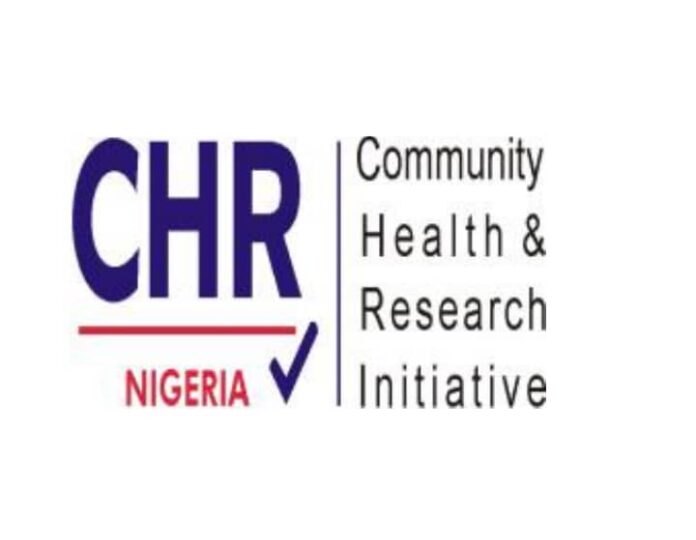As the global community commemorates World Health Day today 7th April , 2025, the Community Health and Research Initiative (CHR) joins in spotlighting the urgent need to prioritize maternal, newborn, and child health in Nigeria.
This year’s theme, “Healthy Beginnings, Hopeful Futures,” emphasizes the importance of investing in the health and well-being of women and children to build stronger, healthier societies.
Globally, the scale of maternal and child health concerns remains significant. According to the World Health Organization (WHO), approximately 300,000 women die each year from pregnancy or childbirth-related complications. More than 2 million newborns die within the first month of life, while another 2 million are stillborn. These global figures highlight the need for strengthened healthcare systems, particularly at the sub national level, where access to timely and quality care can make a crucial difference in outcomes.
The situation in Nigeria, as revealed by the 2023–2024 Nigeria Demographic and Health Survey, reflects a similarly pressing concern:
Maternal Care:
The proportion of women receiving antenatal care from a skilled provider dropped slightly from 67% in 2018 to 63% in 2023–2024, suggesting that focused efforts are needed to improve the situation.
Childhood Vaccination:
In 2023, only 13 percent of children aged 12 to 23 months had received all basic antigens. Encouragingly, this figure rose to 39 percent in the 2023–2024 period, demonstrating progress. However, 31 percent of children in the same age group still received no vaccinations at all, showing that much work remains.
Child Nutrition:
Indicators of child nutrition have shown minimal improvement. In 2023–2024, 40 percent of children under 5 were stunted, 8 percent wasted, 27 percent underweight, and 1 percent overweight—compared to 37 percent, 7 percent, 22 percent and 2 percent respectively in 2018.
Early Childhood Mortality:
During the 5 years immediately preceding the survey, the neonatal mortality rate is currently 41 deaths per 1,000 live births, indicating that approximately one in every 24 newborns dies within the first month of life. The infant mortality rate stands at 63 per 1,000 live births, meaning one in every 16 infants dies before reaching their first birthday. The under-5 mortality rate is 110 per 1,000 live births, reflecting that one in every 9 children dies before their fifth birthday.
The North West zone reports the highest mortality rates, with Kano State experiencing the highest neonatal mortality rate at 59 per 1,000 live births, Kebbi State had the highest post neonatal mortality rate at 41 per 1,000 live births, and also highest infant mortality at 90 per 1,000 live births. Jigawa State recorded the highest under-5 mortality rate at 161 per 1,000 live births.
These statistics underscore the urgent need to strengthen maternal and child health policies, particularly in the North West region, where outcomes suggest the need for increased attention and support.
CHR acknowledges the Kano State government’s commitment to addressing these issues through its allocation of 1 billion naira in the 2025 approved budget for the purchase of free maternal and child care and accident & emergency (A&E) drugs programme. This represents a meaningful step toward improving access to essential services.
In May 2023, the Kano State government enacted the Free Maternal and Child Healthcare Law to provide a sustainable and rights-based approach to improving health outcomes for women and children. The law guarantees access to antenatal and postnatal care, supports informed reproductive health decisions, and upholds the right to safe motherhood. It also outlines the provision of services such as childbirth spacing, assisted deliveries including caesarean sections, ectopic pregnancy management, and ambulance transport. Importantly, it mandates the establishment of a consultative council under the supervision of Ministry of Budget and Planning, with clear responsibilities and roles.
However, legislation alone is not enough. CHR urges the Kano State government to move swiftly toward full implementation of the law. This includes developing a detailed action plan, a strategic operational framework, and crucially establishing the consultative council as stipulated. Without these steps, the law’s provisions risk remaining unfulfilled, and the improvements in health outcomes it promises may not be realized.
Furthermore, effective implementation should engage all stakeholders—government institutions, healthcare professionals, development partners, civil society and community based organizations—to ensure accountability and broad-based ownership. Only with consistent and deliberate action can the law serve its purpose and positively impact the lives of women and children across the state.
As we commemorate World Health Day, CHR reaffirms its commitment to ensuring that every mother and child not only survives but thrives. The health of women and children is the bedrock of resilient families and sustainable development. Together, we must make every birth a symbol of life, hope, and opportunity.
Signed,
Nafisa Shehu Ibrahim
Executive Administrator
Community Health and Research Initiative (CHR)



